Main Exam Date
13-06-2023
Overview
The National Eligibility Test (NET) is held by the National Testing Agency on behalf of UGC. The test is held for ascertaining the eligibility of Indian nationals/applicants for the eligibility for Assistant Professor and Junior Research Fellowship. The exam is conducted for over 84 subjects for recruitment in 874 Universities.
National Testing Agency (NTA) - UGC NET Conducting Body:
The UGC NET exam is conducted by the National Testing Agency. The National Testing Agency is an Indian government agency that has been recognized by the Union Council of Ministers and founded in November 2017.
National Testing Agency (NTA) - UGC NET Important Dates:
|
Events |
Dates |
Mode |
Link |
|
Registration Date |
May 2023 |
Online |
|
|
Application Date |
May 2023 |
||
|
Admit Card Date |
May 2023 |
||
|
Exam Date phase1 Exam Date Phase 2 Exam Date Phase 3 Phase 4 |
13/06/2023 To 22/06/2023 |
||
|
Result Date |
Will be updated soon. |
National Testing Agency (NTA) - UGC NET Selection Procedure:
The National Eligibility Test (NET) Selection Process comprises various rounds of screening of applicants. The written test is one such round of the selection method. The Written Test will be followed by the counselling round for the applicants who successfully clear the UGC NET.
For UGC NET selection process, applicants can go through the subsequent details:
-
Applicants have to obtain minimum marks in both the papers to be counted for the award of JRF and qualification for Assistant Professor.
-
For selection, a subject-wise and category-wise merit list is made based on marks scored by the applicants in all the rounds.
-
From the merit list made, the top 15% of applicants from each subject and category are chosen and announced as NET qualified for Assistant Professor only.
-
The other merit list highlighting the names of the selected applicants is made from the NET passed applicants merit list for Junior Research Fellows (JRF).
National Testing Agency (NTA) - UGC NET Exam Pattern:
|
Paper |
No. of Questions. |
Max. Marks |
Duration/ 1st Shift |
Duration/ 2nd Shift |
|
Paper-1 |
50 |
100 |
1 hour (9.30 am to 10.30 am) |
1 hour (2.30 pm to 3.30 pm) |
|
Paper-2 |
50 |
200 |
2 hours (11.00 am to 1.00 pm) |
2 hours (4.00 pm to 6.00 pm) |
Note:- Paper 2 covers the syllabi of Paper 2 and Paper 3 of the previous pattern of UGC NET.
National Testing Agency (NTA) - UGC NET Eligibility Criteria:
University Grants Commission defines the qualification criteria for the NET exam. Applicants have to define in the application form whether they want to apply only for “Assistant Professor” or both “Junior Research Fellowship and Assistant Professor”. UGC NET Eligibility for JRF and Assistant Professorship varies and applicants must meet the criteria before applying for the exam.
Educational Criteria:
-
Master's Degree holders with at least 55% marks (50% for reserved candidates) can register for the exam.
-
Students waiting for results or in the final year of the Master’s program or can also apply for the exam.
-
Ph.D. degree holders are given relaxation of 5% in aggregate marks.
-
SC, ST, OBC, PWD, Transgender, and Women candidates are provided an age relaxation of up to 5 years.
Age Criteria:
-
Applicants must not be more than 30 years of age to apply for Junior Research Fellowship.
-
There is no age limit to apply for the Assistant Professor.
National Testing Agency (NTA) - UGC NET Syllabus/Subjects:
UGC NET Paper 1 Syllabus
UGC NET Paper 1 syllabus has 10 units and exactly 5 questions will be asked from each unit, Paper 1 is compulsory for every applicant. Paper 1 includes 50 questions worth 100 marks. Detailed syllabus for Paper 1 is described below:
- Unit-I Teaching Aptitude:
-
Teaching: Concept, Objectives, Characteristics and basic requirements, Levels of Teaching (Memory, Understanding, and Reflective).
-
Learner’s characteristics: Features of Adolescent and Adult learners (Social, Academic, Emotional and Cognitive), Individual differences.
-
Factors affecting Teaching related to Teacher, Support material, Learning environment, Learner, Instructional facilities and Institution.
-
Methods of teaching in Institutions of higher learning: Off-line vs. On-line methods (Swayam, Swayamprabha, MOOCs, etc.), Teacher centered vs. Learner-centered methods;
-
Teaching Support System: Traditional, Modern and ICT based.
-
Evaluation Systems: Elements and Types of evaluation, Innovations in Evaluation systems, Computer-based testing, Evaluation in Choice Based Credit System in Higher education.
- Unit-II Research Aptitude:
-
Research: Meaning, Types, Positivism and Postpositivistic approach to research and Characteristics.
-
Methods of Research: Experimental, Qualitative and Quantitative Methods, Descriptive, Historical, Steps of Research.
-
Thesis and Article writing: Format and styles of referencing, Research ethics, Application of ICT in research
- Unit-III Comprehension:
-
A passage of text is given. Questions are asked from the passage.
- Unit-IV Communication:
-
Communication: Meaning, types, and characteristics of communication.
-
Effective communication: Verbal and Non-verbal, Inter-Cultural and group communications, Mass-Media and Society, Classroom communication, Barriers to effective communication,
- Unit-V Mathematical Reasoning and Aptitude:
-
Types of reasoning: Number series, Codes, Letter series, and Relationships.
-
Mathematical Aptitude: Fraction, Proportion and Percentage, Profit and Loss, Time & Distance, Ratio Interest and Discounting, Averages, etc.
- Unit-VI Logical Reasoning:
-
Understanding the structure of arguments: the structure of Categorical Propositions, Mood and Figure, argument forms, Connotations, and Denotations of terms, Formal and Informal Fallacies, Uses of language, Classical square of opposition, Evaluating and Distinguishing Deductive and Inductive Reasoning, Analogies.
-
Venn diagram: Simple and multiple uses for establishing a period of arguments.
-
Indian Logic: Means of knowledge, Shabda (Verbal testimony), Pramanas- Pratyaksha (Perception) Anumana (Inference), Arthapatti (Implication), Upamana (Comparison), and Anupalabddhi (Non-apprehension), Vyapti (invariable relation), Structure and kinds of Anumana (inference), Hetvabhasas (fallacies of inference).
- Unit-VII Data Interpretation:
-
Sources, Acquisition, and classification of Data.
-
Quantitative and Qualitative Data.
-
Graphical representation (Bar-chart, Histograms, Pie-chart, Table-chart, and Line-chart)
-
Mapping of Data, Data Interpretation. Data and Governance.
- Unit-VIII Information and Communication Technology (ICT):
-
ICT: General abbreviations and terminology, Audio and Video-conferencing, Basics of the Internet, Intranet, E-mail, Digital initiatives in Higher Education. ICT and Governance.
- Unit-IX People, Development and Environment:
-
Development and Environment: Sustainable development goals and Millennium development
-
Human & Environment Interaction
-
Environmental Isues: Local and Global; Pollution - Air, Water, Soil, Noise; Waste (Solid, Liquid, Hazardous, Biomedical, & Electronic), Climate Change & its Political & Socio-Economic dimensions; Impacts of Pollutants.
-
Natural Energy Resources: Wind, Solar, Soil, Biomass, Geothermal, Hydro, Nuclear, & Forests.
-
Natural Hazards and Disasters: National Action Plan on Climate Change Environmental Protection Act (1986), Mitigation strategies, International agreements, Rio Summit, Montreal Protocol, Paris Agreement, Kyoto Protocol, Convention on Biodiversity, International Solar Alliance.
- Unit-X Higher Education System:
-
Institutions of Higher Learning and Education (Ancient India).
-
Evolution of Higher Learning and Research during Post Independence India.
-
Oriental, Conventional and Non-conventional learning programs in India.
-
Professional, Technical and Skill-Based education.
-
Value education and environmental education.
-
Policies, Governance, and Administration.
UGC NET Paper 2 Syllabus:
-
Economics/ Co-operation/ Rural Economics/ Demography/ Development Studies/ Development Planning/ Econometrics/ Development Eco./ Applied Economics/ Business Economics
-
Political Science
-
Philosophy
-
Psychology
-
Sociology
-
History
-
Anthropology
-
Commerce
-
Education
-
Social Work
-
Defense and Strategic Studies
-
Home Science
-
Public Administration
-
Population Studies
-
Music
-
Management (Business Admin. Management/ Marketing Management/ Marketing/ Industrial Relations and Personnel Management/ Financial Management/ Personnel Management/ Co-operative Management)
-
Maithili
-
Bengali
-
Hindi
-
Kannada
-
Malayalam
-
Oriya
-
Punjabi
-
Sanskrit
-
Tamil
-
Telugu
-
Urdu
-
Arabic
-
English
-
Linguistics
-
Chinese
-
Dogri
-
Nepali
-
Assamese
-
Gujarati
-
Marathi
-
French (French Version)
-
Spanish
-
Russian
-
Persian
-
Rajasthani
-
German
-
Japanese
-
Adult Education/ Continuing Education/ Andragogy/ Non Formal Education
-
Physical Education
-
Arab Culture and Islamic Studies
-
Indian Culture
-
Labour Welfare/ Industrial Relations/ Personnel Management/ Human Resource Management/ Labour and Social Welfare
-
Law
-
Library and Information Science
-
Buddhist, Jaina, Gandhian and Peace Studies
-
Comparative Study of Religions
-
Mass Communication and Journalism
-
Performing Art - Dance/ Drama/ Theatre
-
Museology & Conservation
-
Performing Art - Dance/ Drama/ Theatre
-
Archaeology
-
Criminology
-
Tribal and Regional Language/ Literature
-
Folk Literature
-
Folk Literature
-
Comparative Literature
-
Sanskrit Traditional subjects (Navya Vyakarna/ Jyotisha/ Sidhanta Jyotish/ Vyakarna/ Tulanatmaka Darsan/ Navya Nyaya/ Madhav Vedant/ Sankhya Yoga/ Shukla Yajurveda/ Puranotihasa/ Dharmasasta/ Mimansa/ Sahitya/ Agama).
-
Women Studies
-
Visual Art (Drawing & Painting/ Applied Art/ Sculpture Graphics/ History of Art)
-
Geography
-
Social Medicine & Community Health
-
Forensic Science
-
Pali
-
Kashmiri
-
Konkani
-
Computer Science and Applications
-
Electronic Science
-
Environmental Sciences
-
Politics (International Relations & Studies including Strategic Studies, Defence, West Asian Studies, South East Asian Studies, South Asian Studies, African Studies, American Studies, Soviet Studies.)
-
Prakrit
-
Human Rights and Duties
-
Tourism Administration and Management
-
Bodo
-
Santali
-
Yoga
-
Sindhi
National Testing Agency (NTA) - UGC NET FAQs:
Ques 1. What is the AGE LIMIT for Junior Research Fellowship (JRF) and Assistant Professor Posts?
Ans. The below table will give a brief detail of the Age Limit for Assistant Professor and Junior Research Fellowship (JRF) Posts as per the latest official Notification:
|
Posts |
Age Limit |
|
Junior Research Fellowship (JRF) |
30 years |
|
Assistant Professor |
No upper age limit |
Ques 2. Is there any age limit relaxation for SC/ST /OBC Categories?
Ans. Yes, there is relaxation on Upper Age Limit for the below categories of the candidates:
|
S. No. |
Category | Age Limit Relaxation |
|
1. |
Scheduled Caste / Scheduled Tribe |
5 years (35 years) |
|
2. |
Other Backward Classes (OBC) |
|
|
3. |
Women |
|
|
4. |
Persons with disabilities (PwD) |
|
|
5. |
Transgender |
|
|
6. |
Candidates having Research experience |
The maximum period spent |
|
7. |
Candidates possessing L.L.M. Degree |
3 years |
|
8. |
Candidates who have served in the armed forces |
5 years |
Ques 3. What is the minimum education qualification required for Assistant Professor and Junior Research Fellowship (JRF) Posts?
Ans. The criteria is given below:
|
Category |
Percentage Criteria |
|
General (Including candidates |
55% aggregate in Master’s |
|
OBC/ ST/ SC/ PWD/ Transgender |
50% aggregate in Master's |
|
Ph.D. degree holders |
50% aggregate in Master's |
Ques 4. Can a candidate apply for multiple subjects while filling the online application form?
Ans. A candidate can fill the application form in only one subject. He/she can choose out of the subjects given in the Information Bulletin. However, filling in the Multiple Forms will cancellation of the application form.
Ques 5. Is the UGC NET Exam conducted in online or offline mode?
Ans. The test is a computer-based test and is conducted through online mode only.
Ques 6. Is there any negative marking in the UGC NET Exam?
Ans. There is no Negative Marking in UGC NET.
Ques 7. Is there any sectional cut-off in the UGC NET Exam?
Ans. No, there is be no sectional cut-off in the exam.
Ques 8. What is the number of attempts for appearing in the UGC NET Exam?
Ans. The NTA holds the UGC NET Exam twice a year. The first is held in June and 2nd in December.
Ques 9. Is there any way to change the medium of the exam after submitting the form?
Ans. The medium should be filled while applying online however in CBT. There is also an option to choose the medium during the examination.
Ques 10. Can NTA change the examination center other than the options chosen by the candidates?
Ans. The candidates select any four cities of their choice for examination. The efforts are made to allow the city of examination to the candidates in order of the choice opted by them in their application form. However, it is not a guarantee.
Ques 11. What is the reservation criteria for seats falling under the jurisdiction of States?
Ans. It is as per State Reservation Policy.
CONCLUSION: This exam is giving a good chance to eligible applicants who want to make their careers in the Railways sector. This is a good occasion for desiring applicants who want to make their careers as JRF. Aspirants must take the benefit of this opportunity by preparing well for the exam. The team of estudentbook wishes you all the best for your upcoming future.
Related Exam
For Timely Preparation With Updated Information
Main Exam Date
13-06-2023
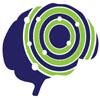
Mindgame Coaching Classes
Andheri West, Maharashtra
Non Recognised
Sahitya Classes, Dehradun
New Delhi, Delhi
Non Recognised
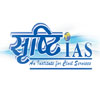
Srishti IAS Coaching Centre, Lucknow
Lucknow, Uttar Pradesh
Non Recognised
Nice Classes, Guwahati
Guwahati, Assam
Non Recognised
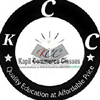
Kapil Commerce Classes, Jaipur
Jaipur, Rajasthan
Non Recognised
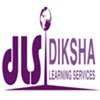
Diksha Learning Services Pvt. Ltd.
Kolkata, West Bengal
Non Recognised
Ananya Academy
Prayagraj, Uttar Pradesh
Non Recognised
Zenith Education, Jaipur
Jaipur, Rajasthan
Non Recognised
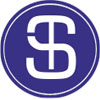
Strive Institutes, Andheri
Mumbai, Maharashtra
Non Recognised
Parth Education, Ahmedabad
Chandkheda, Gujarat
Non Recognised
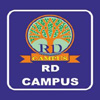
RD Campus, Delhi
Delhi, Delhi
Non Recognised
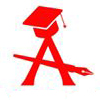
Arihant Career Group,Ahmedabad
Ahmedabad, Gujarat
Non Recognised
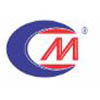
Career Managers Institute
Borivali, Maharashtra
Non Recognised
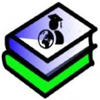
Commerce Whiz
Allahabad, Uttar Pradesh
Non Recognised
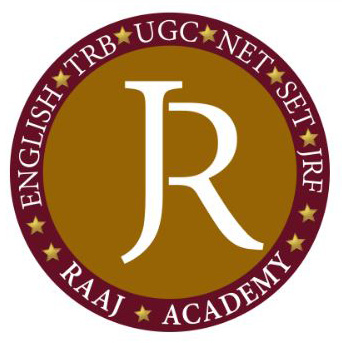
Raaj Academy, Chennai
Anna Nagar, Tamil Nadu
Non Recognised
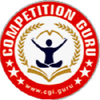
Competition Guru, Chandigarh
Chandigarh, Chandigarh
Non Recognised
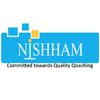
Nisham Coaching Classes, Bhopal
Bhopal, Madhya Pradesh
Non Recognised
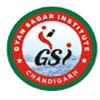
Gyan Sagar Institute
Chandigarh, Chandigarh
Non Recognised
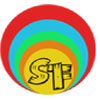
Success Forum, Thane West
Thane West, Maharashtra
Non Recognised
Ogley Institute - An institute for IAS & Civil Services
Bhopal, Madhya Pradesh
Non Recognised
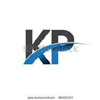
KP Education, Panchkula
Panchkula, Haryana
Non Recognised

Avon Academy, Mumbai
Mumbai, Maharashtra
Non Recognised
Csir Net Club Life science
Patna, Bihar
Non Recognised
CSIR Point Academy, Lucknow Branch
Lucknow, Uttar Pradesh
Non Recognised
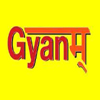
Gyanm Coaching Center
Nawanshahr, Punjab
Non Recognised
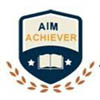
Aim Achiever,Chandigarh
Chandigarh, Chandigarh
Non Recognised
CT Campus
Delhi, Delhi
Non Recognised
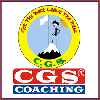
CGS Coaching, New Delhi
New Delhi, Delhi
Non Recognised
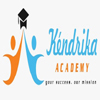
Kendrika Academy, Lucknow
Lucknow, Uttar Pradesh
Non Recognised
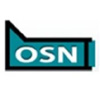
OSN Academy, Aliganj
Aliganj, Uttar Pradesh
Non Recognised
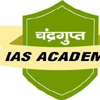
Chandragupta IAS Academy
Ranchi, Jharkhand
Non Recognised
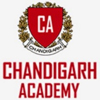
Chandigarh Academy
Chandigarh, Chandigarh
Non Recognised
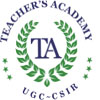
Teachers Academy
Khandari, Uttar Pradesh
Non Recognised
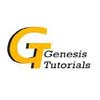
Genesis Tutorials
Dehradun, Uttarakhand
Non Recognised
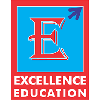
Elite IIT, Bengaluru
Bengaluru, Karnataka
Non Recognised
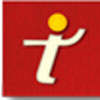
Teachwell Institute
Rohini, Delhi
Non Recognised
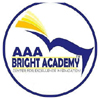
AAA Bright Institute, Chandigarh
Chandigarh, Chandigarh
Non Recognised
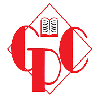
Gilbert Professional Classes
Guwahati, Assam
Non Recognised
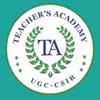
Global Teachers Academy
Khandari, Uttar Pradesh
Non Recognised
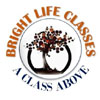
Bright Life Classes, Guwahati
Guwahati, Assam
Non Recognised
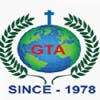
Global Teachers Academy, Delhi
New Delhi, Delhi
Non Recognised
Prepare IAS Coaching, Lucknow
Lucknow, Uttar Pradesh
Non Recognised

BioLit - Institute for Life science's
Thiruvananthapuram, Kerala
Non Recognised
Bsscitech Pvt. Ltd.
New Delhi, Delhi
Non Recognised
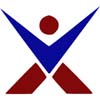
Apex Coachings, Delhi
New Delhi, Delhi
Non Recognised

Professor Academy
Kodambakkam, Tamil Nadu
Non Recognised
JK Study Circle
Gandhi nagar, Jammu and Kashmir
Non Recognised
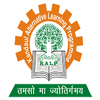
Kalp Institute of Research & Development
, Delhi
Non Recognised
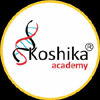
Koshika Academy, Lucknow
Lucknow, Uttar Pradesh
Non Recognised
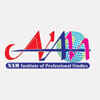
NAM Institute of Professional Studies
New Delhi, Delhi
Non Recognised
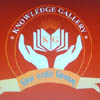
Knowledge Gallery, Delhi
, Delhi
Non Recognised
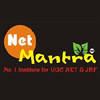
Net Mantra
New Delhi, Delhi
Non Recognised

Total Solution Guru
Raipur, Chhattisgarh
Non Recognised

Mentors Academy, Chandigarh
Chandigarh, Chandigarh
Recognised
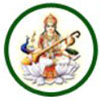
Surbhi Academy
Chandigarh, Chandigarh
Non Recognised

Reliant Academy
Cochin, Kerala
Non Recognised
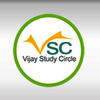
Vijay Study Circle
Ranchi, Jharkhand
Non Recognised
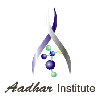
Aadhar Institute
Jaipur, Rajasthan
Non Recognised
eStudent Times
Our aim is to bridge knowledge and education through the latest news, innovation in education, updates, and notifications around the globe guiding the students towards erudition in their field of interest.

UGC NET June 2021: Registration Started
The National Testing Agency has commenced the registration procedure for UGC NET June 2021...

UGC NET 2021: Correction Window Activated For Dec & June Cycle
The National Testing Agency has activated the correction window for UGC NET Exam 2021...

NTA Rescheduled UGC NET Dec 2020 & June 2021 Sessions
The National Testing Agency has rescheduled the UGC NET Exam...

UGC NET 2021: Admit Card Released For First Two Exam Dates
The National Testing Agency has released the admit card of the UGC NET 2021...

UGC NET 2021: Admit Card Released For 3rd & 4th Day
The National Testing Agency has released the admit card of the UGC NET 2021...

UGC NET 2021: Admit Card Released For Nov 24 - Nov 26 Exams
The National Testing Agency has released the admit card of the UGC NET 2021...

UGC NET 2021: Admit Card Released For Nov 29 - Dec 05 Exams
The National Testing Agency has released the admit card of the UGC NET 2021...

UGC NET 2021: Phase-II Exam Schedule Released
The National Testing Agency has released the exam schedule for the UGC NET Phase II 2021...

UGC NET 2021: Phase-II Exam Schedule Released
The National Testing Agency has released the exam schedule for the UGC NET Phase II 2021...

UGC NET 2021: Phase-III Exam Schedule Released
The National Testing Agency will conduct the UGC NET Phase-III Exam on Jan 04 and Jan 05, 2022...

UGC Rescheduled NET For Kannada Paper, Fresh Date To Be Released Soon
The National Testing Agency has rescheduled the UGC NET exam date for the Kannada paper...

UGC NET Phase-III Exam 2021: Admit Card Released
The National Testing Agency has released the admit card for the UGC NET Phase III Exam 2021...

UGC NET 2021: Answer Key Released
The National Testing Agency has released the answer key for the UGC NET 2021...

UGC NET 2021: Result To Be Released Soon
The National Testing Agency will release the results of the UGC NET 2021 for Dec and June cycle soon...

UGC NET 2021: Result Declared For Dec 2020 & June 2021 Cycles
The National Testing Agency has announced the result for the UGC National Eligibility Test Dec 2020 and June 2021 cycles...

UGC NET 2022: Registration Starts
The National Testing Agency has commenced the registration procedure for UGC NET Dec 2021 & June 2022 merged cycles...

UGC NET 2022: Application Deadline Extended Till May 30
UGC Chairman M Jagadesh Kumar, through Twitter, announced the extension of the application deadline of the UGC NET 2022 for Dec 2021 and June 2022 cycles...

UGC NET Exam 2022: Last Date To Apply
National Testing Agency will conclude the registration process for UGC NET Exam 2022 today...

UGC Postponed NET Phase 2 Exam, To Be Held From Sept 20
University Grants Commission has announced to postpone the UGC National Eligibility Test Phase-2 Exam 2022...

UGC NET Phase 2 Exam 2022: Admit Card To Release Today
National Testing Agency will release the admit card for UGC NET Phase 2 Exam 2022 today...

UGC NET Phase 2 Exam 2022: Admit Card Released
National Testing Agency has released the admit card for UGC NET Phase 2 Exam 2022...
.png)
UGC NET Phase-3 Exam: Admit Card Released
National Testing Agency has released the admit card for UGC NET Phase 3 Exam 2022...
.png)
UGC NET 2022: Admit Card Released For Oct 14
National Testing Agency has released the admit card for UGC NET Dec Exam 2022...

UGC NET 2022: Result To Release on Nov 05, UGC Chairman
UGC Chairman, Mamidala Jagadesh Kumar has announced that the results of UGC NET 2022 will be declared on Nov 05, 2022 by NTA...

UGC NET Dec Phase I Exam 2022: Admit Card Released
National Testing Agency has released the admit card for UGC NET Phase 1 Dec Exam 2022...

UGC NET Dec 2022: Phase 4 Exam City Information Slip Released
National Testing Agency has released the advanced information slip of exam cities for the UGC NET Dec Phase 4 Exam 2022...

UGC NET Dec Phase 4 Exam 2022: Admit Card Released
National Testing Agency has released the admit card for UGC NET Dec Phase 4 Exam 2022...

UGC NET Dec Phase 5 Exam 2022: Admit Card Released
National Testing Agency has released the admit card for UGC NET Dec Phase 5 Exam 2022...


 Main Exam Date
Main Exam Date  Notification(s)
Notification(s) 
 Overview
Overview Eligbility
Eligbility Selection Procedure
Selection Procedure Application
Application Syllabus
Syllabus Pattern
Pattern Admit Card
Admit Card Sample Paper
Sample Paper More
More Cut offs and Result
Cut offs and Result Fee
Fee Faq
Faq Blog
Blog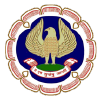
.png)
Post Comments